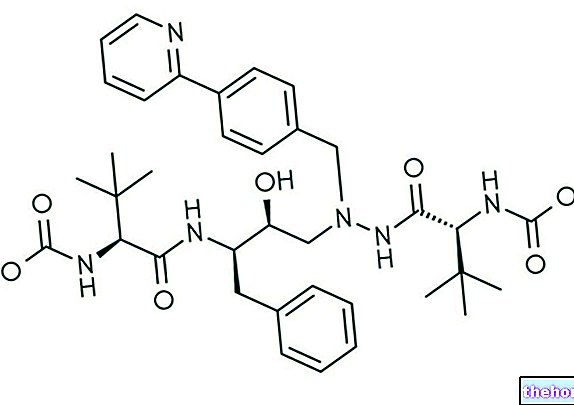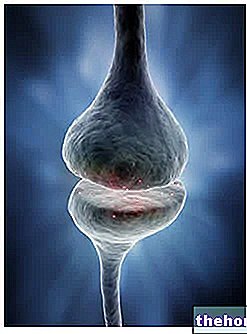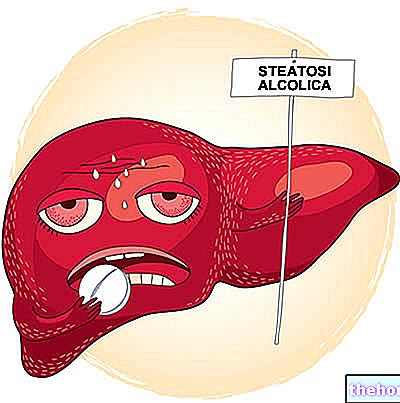CLEOCIN ® is a drug based on Clindamycin sulphate
THERAPEUTIC GROUP: Antibiotics - Gynecological antimicrobials and antiseptics

Indications CLEOCIN ® Clindamycin
CLEOCIN ® is indicated in the treatment of vaginal infections caused by microorganisms sensitive to lincosamides such as Clindamycin.
Mechanism of action CLEOCIN ® Clindamycin
Clindamycin, active ingredient of CLEOCIN ®, is a semi-synthetic antibiotic obtained through halogenation of Lincomycin particularly effective in the treatment of infections caused by anaerobic flora, in some cases replacing Metronidazole for the treatment of vaginitis and vaginosis.
The topical use in cream rather than the use of vaginal ovules, allows the active ingredient to locally reach therapeutic concentrations useful for carrying out the bacteriostatic activity through the link with the 50S ribosomal subunit and the consequent inhibition of the elongation of the nascent peptide chain mediated by the peptidyl transferase enzyme.
The mechanism of action of clindamycin and more generally of lincosamides, superimposable to that of macrolides, is often responsible for cross-reactions to macrolides, as in the case of hypersensitivity to the active ingredient rather than the onset of resistance mechanisms characterized by:
- Expression of efflux pumps on the surface of the bacterial cell;
- Expression of enzymes inactivating the active principle;
- Genetic and structural variations of the biological target.
This drug has shown its effectiveness especially against some microorganisms normally responsible for bacterial vaginosis such as Gardnerella vaginalis, Mobiluncus, Bacteroides, Mycoplasma Hominis and Peptostreptococcus.
Studies carried out and clinical efficacy
1. CLINICAL TRIAL ON THE "EFFECTIVENESS OF CLINDAMYCIN
Gynecol Obstet Invest. 2012; 73: 8-15.
A comparison of dequalinium chloride vaginal tablets (Fluomizin ®) andclindamycin vaginal cream in the treatment of bacterial vaginosis: a single-blind, randomized clinical trial of efficacy and safety.
Weissenbacher ER, Donders G, Unzeitig V, Martinez de Tejada B, Gerber S, HalaÅ¡ka M, Å paÄ ek J; Fluomizin Study Group.
Clinical trial that demonstrates the same efficacy of the application of Clindamycin in cream compared to the vaginal tablets of other drugs, in the treatment of bacterial vaginitis, but with fewer side effects.
2. THE EFFECTIVENESS OF CLINDAMYCIN CREAM IN PREGNANT WOMEN
Int J STD AIDS. 2012 Aug; 23: 565-9.
Rescreening for abnormal vaginal flora in pregnancy and re-treating withclindamycin vaginal cream significantly increases cure and improvement rates.
Lamont RF, Taylor-Robinson D, Bassett P.
Study that demonstrates the efficacy of the use of Clindamycin in cream for the treatment of bacterial vaginosis in pregnant women, significantly reducing in just 7 days of therapy both associated symptoms and positivity to microbiological tests.
3. SEXUAL PRACTICE AND RECURRING INFECTIONS
Clin Infect Dis. 2012 Dec 12.
Recurrence of bacterial vaginosis is significantly associated with post-treatment sexual activities and hormonal contraceptive use.
Bradshaw CS, Vodstrcil LA, Hocking JS, Law M, Pirotta M, Garland SM, De Guingand D, Morton AN, Fairley CK.
Interesting study that demonstrates intense sexual activity and the use of hormonal contraceptives, may facilitate the onset of recurrent bacterial infections responsible for vaginosis, while reducing the effectiveness of antibiotic therapy.
Method of use and dosage
CLEOCIN ®
Vaginal suppositories of 100 mg of Clindamycin;
Clindamycin 2% vaginal cream.
Generally the therapeutic scheme envisaged for CLEOCIN ® vaginal ovules is one egg per day for intravaginal administration before going to bed, while for CLEOCIN ® in cream an application of 5 g for 3-7 days.
CLEOCIN ® Clindamycin warnings
Although topical use and vaginal administration are generally safer than oral, it is always necessary to consider the potential side effects of Clindamycin therapy, mainly represented by a profound intestinal dysbiosis, due to the compromised microflora, responsible for severe diarrhea. , often accompanied by Clostridium Difficile superinfections, then by pseudomembranous colitis.
For this reason, the use of CLEOCIN ® should be done with particular caution in patients with a previous history of gastrointestinal, liver and kidney diseases.
Prolonged use of Clindamycin could also lead to colonization by germs resistant to antibiotic therapy, in particular fungi, responsible for a serious deterioration of clinical conditions.
The presence of paraffin in CLEOCIN ® cream could reduce the effectiveness of some contraceptive methods such as the diagram and condoms.
PREGNANCY AND BREASTFEEDING
The use of Clindamycin in pregnancy is still highly debated, given the presence of conflicting studies regarding the safety of antibiotic therapy.
In fact, considering the general contraindication to the use of the drug in the first trimester, there are still no statistically significant studies able to characterize the safety profile of Clindamycin for the fetus exposed in the following trimesters.
Therefore, also considering that this active principle, absorbed systemically, is excreted in breast milk, the use of CLEOCIN ® during pregnancy and in the subsequent period of breastfeeding is not recommended.
Interactions
Despite the low systemic absorption of Clindamycin used topically, it is always useful to remember to avoid the simultaneous administration of:
- Other intravaginal therapeutic products;
- Macrolides for the enhancement of side effects;
- Erythromycin for the natural antagonism observed;
- Drugs with neuromuscular blocking activity for the enhancement of inhibitory activity.
Contraindications CLEOCIN ® Clindamycin
The use of CLEOCIN ® is contraindicated in patients with hypersensitivity to the active substance or to one of its excipients, as well as with a previous history of colitis linked to antibiotic therapy.
Undesirable Effects - Side Effects
The use of CLEOCIN ® is generally well tolerated and free from clinically relevant side effects.
In some cases, however, superinfections from resistant pathogens such as Candida albicans and Trichomonas vaginalis have been observed, with consequent vulvar irritation, abdominal cramps and diarrhea, itching and only rarely reactions, including dermatological reactions due to hypersensitivity to the drug.
Note
CLEOCIN ® is a prescription drug.
The information on CLEOCIN ® Clindamycin published on this page may be out of date or incomplete. For a correct use of this information, see the Disclaimer and useful information page.




























